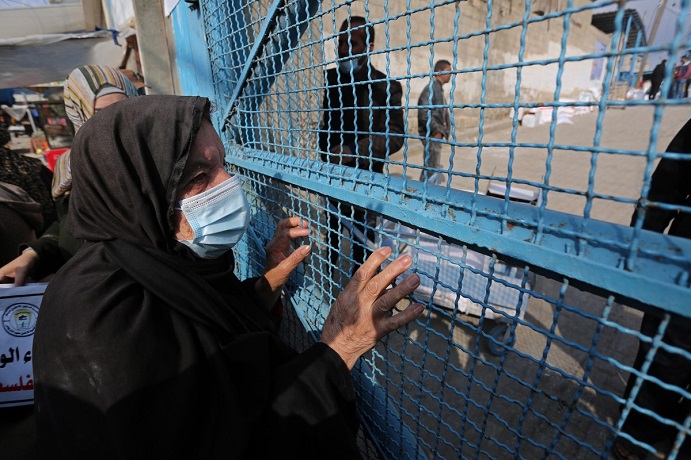Ramona Wadi
Middle East Monitor / December 24, 2020
The EU’s recent financial donation to the UN Relief and Works Agency for Palestine Refugees (UNRWA) leaves no doubt about the motive. As the agency continues to face an unprecedented year-on-year financial crisis due to the US cancelling its regular and very large donations and insufficient support from the international community, the EU gave an additional $4.8 million to help alleviate the extra burdens imposed by the coronavirus pandemic. At face value, that is.
Sven Kühn von Burgsdorff, the EU’s representative in Jerusalem, gave a more accurate depiction of the motive for the funding, as well as the role that UNRWA is expected to play in the wider context. Financial aid, said von Burgsdorff, “will help address the much needed services for Palestinians in refugee camps and notably in the health sector. UNRWA’s work remains crucial for all Palestinian refugees and the viability of the two-state solution, as well as for the stability and security of the region.”
As it does regularly, in order to assert its role in thwarting Palestine’s independence, the EU reiterated its commitment to the two-state compromise earlier this week. In light of von Burgsdorff’s statement about UNRWA, it is important to consider how humanitarian aid is complicit in the duplicity over the fate of Palestinian refugees and their legitimate right of return.
The major flaw in UN Resolution 194 is that the Palestinian right of return is conditional upon the Palestinian people’s acceptance of Israeli colonialism. This, in turn, renders the nonbinding resolution obsolete in terms of effectiveness.
UNRWA was established as a temporary relief agency “pending a just and lasting solution to their [the Palestinian refugees’] plight.” The agency has also clarified that “the finding of a just and lasting solution to the plight of Palestine refugees is a political matter and is not part of UNRWA’s mandate.”
It cannot be denied, however, that UNRWA plays a political role in establishing its purported neutrality, especially given that it is aiding victims of an ongoing colonial project. It is the political actors who determined the role that UNRWA should play and while the agency is adamant about its humanitarian mission, it cannot dissociate itself from the politics that created the need for its existence, or from its donors, which also have vested interests in supporting Israel.
Notably, von Burgsdorff’s assertion about UNRWA’s crucial role in “the viability of the two-state solution” shows clearly that the neutral stance promoted by the agency is far from unequivocally humanitarian. The two-state compromise is the international community’s chosen political framework that legitimises Israel’s colonial expansion and violence. If UNRWA is playing a role in maintaining two-state politics through its work, then it is playing a much more crucial role than merely supplying basic needs for Palestinian refugees.
Just because the agency provides services which Palestinian refugees cannot do without, though, it does not mean that it is not collaborating in maintaining the Zionist colonial politics that perpetuates the cycle of the Palestinians’ forced displacement. The two-state compromise depends upon Palestinians being prevented from returning to their land, hence UNRWA’s work, as crucial as it is in terms of providing basic needs, must not be the veneer that conceals the political agenda behind decades of internationally-funded humanitarian aid and human rights violations.
Ramona Wadi is an independent researcher, freelance journalist, book reviewer and blogger; her writing covers a range of themes in relation to Palestine, Chile and Latin America













